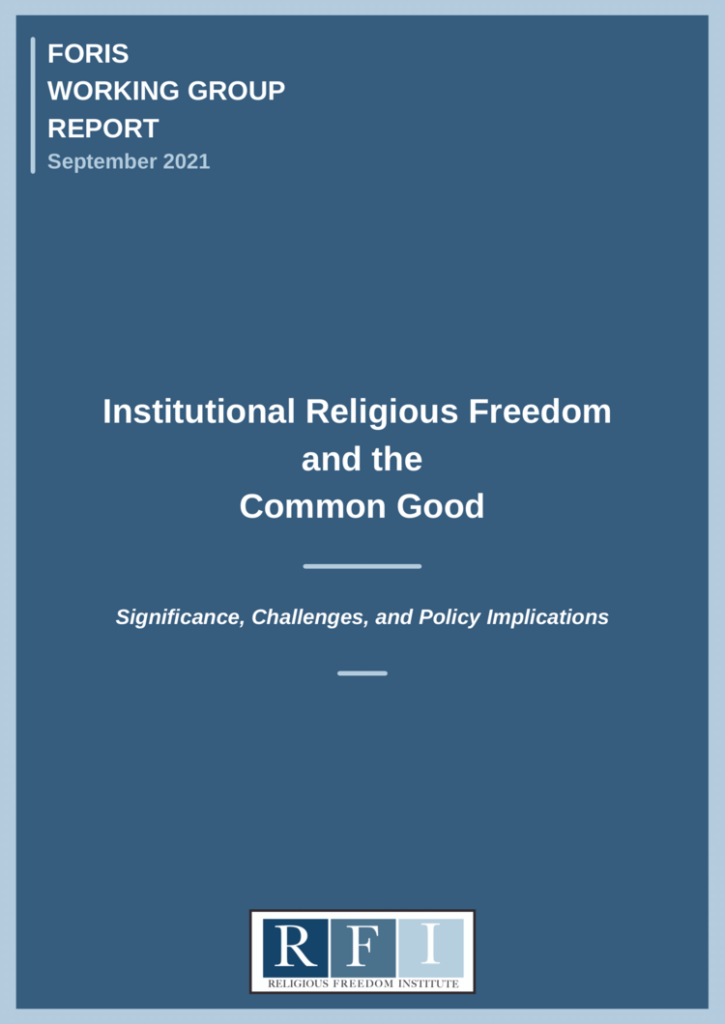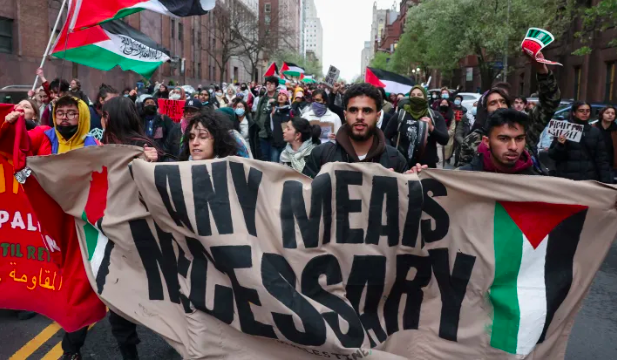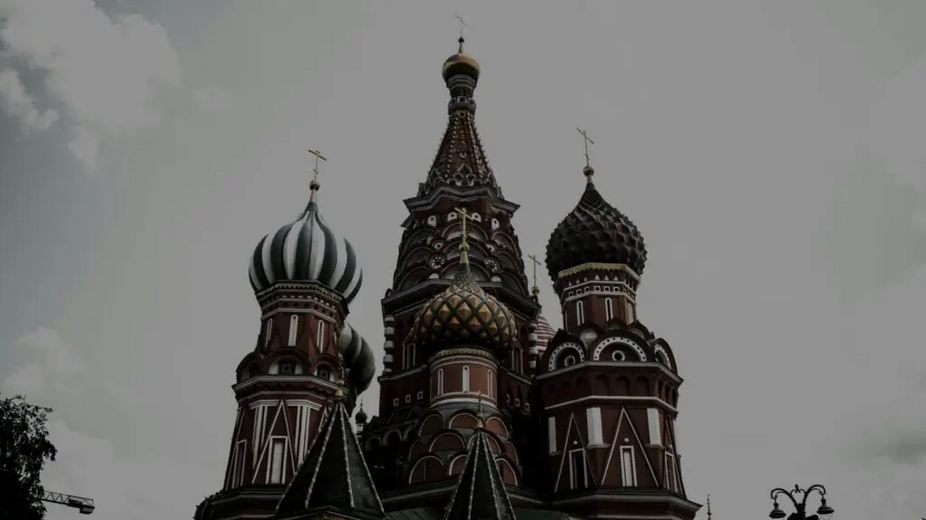
Title: Institutional Religious Freedom and the Common Good: Significance, Challenges, and Policy Implications
Authors: Chad Bauman, Thomas Berg, Robert Hefner, Farahnaz Ispahani, Byron Johnson, and Timur Kuran
About: This working group report emerges from the collaboration of scholars associated with RFI’s Freedom of Religious Institutions in Society (FORIS) Project: Chad Bauman of Butler University, Thomas Berg of the University of St. Thomas, Robert Hefner of Boston University, Farahnaz Ispahani (a former member of the Pakistani Parliament and RFI Senior Fellow), Byron Johnson of Baylor University, and Timur Kuran of Duke University. The report provides, in condensed form, an introduction to the most salient and cross-cutting themes the authors addressed in their research conducted under FORIS auspices. Naturally, the report reflects the authors’ respective areas of expertise in the Middle East and North Africa, South and Southeast Asia, and the United States. The findings presented here should therefore be taken as an illustrative snapshot rather than a universal and panoramic review of issues related to institutional religious freedom globally.
In particular, the report focuses on the following areas. First, it documents the many benefits of institutional religious freedom for societies, noting that institutional religious freedom provides a check on government power and authority, nurtures civic virtue, contributes to the national economy, and produces social capital.
Second, the report outlines a vision of institutional religious freedom that does not simply concern and benefit minority religious institutions in a given country but also those institutions established by minority groups within both the majority and minority religions in that society. The authors also argue that studying a country’s laws (constitutional and statutory), its judicial decrees, and methods of implementation and enforcement are crucial for understanding the state of institutional religious freedom in that society.
Third, the report documents the ways in which institutional religious freedom is indirectly threatened, including: denials of academic, press, and protest freedoms; uneven application of the law; the over-privileging of majority rights; and the over-regulation of religious institutions.
Fourth, the report urges recognition of the influences that different local conceptions of religion can have upon a society’s understanding and implementation of institutional religious freedom. Adding another layer of analysis, the authors offer reflections on how to navigate the challenges of balancing minority and majority rights so inherent to matters of institutional religious freedom.
Publication Date: September 2021
Recommended Citation: Bauman, Chad M., Thomas Berg, Robert Hefner, Farahnaz Ispahani, Byron R. Johnson, and Timur Kuran. “Institutional Religious Freedom and the Common Good: Significance, Challenges, and Policy Implications.” Religious Freedom Institute, 2021.
THE RFI BLOG

A Call to End Anti-Semitism on America’s College Campuses

The Horrendous and Maddening Anti-Semitism in New York City

Religion, the ‘Russian World,’ and the War Against Ukraine

Religious Freedom Is Back on the UK’s Agenda

Be More Faithful, Become More Resilient: An Invitation to Religious Institutions
CORNERSTONE FORUM

Public Bioethics & the Failure of Expressive Individualism

Religious Liberty in American Higher Education

Scotland’s Kate Forbes and the March of Secularism

70 Years of Religious Freedom in Sweden: Prospects and Challenges

